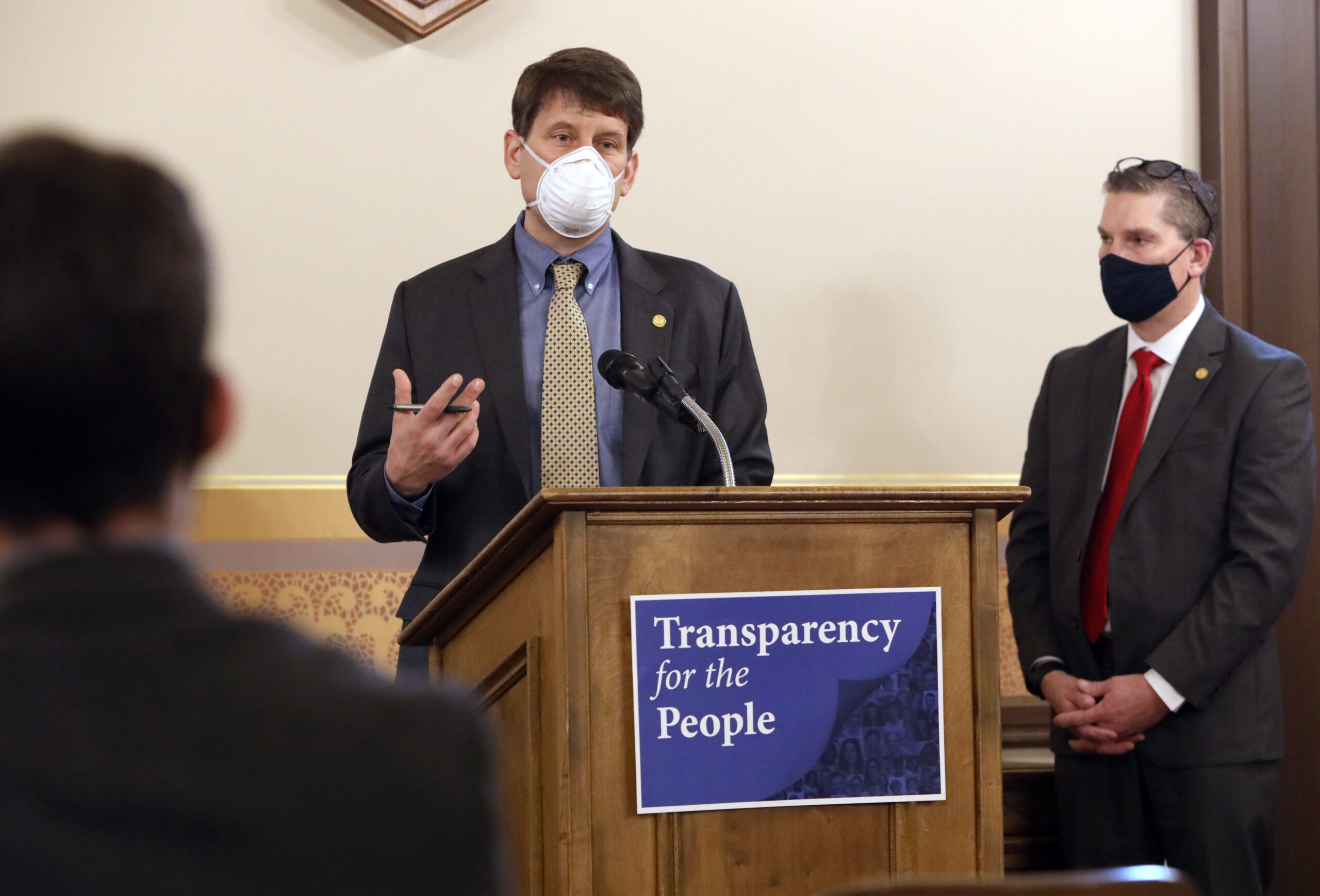Legislation aims to increase transparency within Michigan’s government
LANSING, Mich., Feb. 23, 2021 — State Rep. David LaGrand (D-Grand Rapids), Mark Huizenga (R-Walker) and a bipartisan coalition of legislators announced their package of bills today requiring personal conflict of interest disclosure for state officials and candidates. The 8-bill package aims to increase transparency by helping screen for conflicts of interest in elected officials’ personal finances.
“The people of Michigan need to be able to trust that their elected officials are going to Lansing with only the best of intentions and their community’s wellbeing in mind,” said LaGrand. “These bills will go a long way in restoring some of that trust that has been lost over the years. I am so grateful for the bipartisan support that has been voiced and the cooperation shown on from both sides of the aisle – this should be a no-brainer.”
At the time of a 2015 study by the Center for Public Integrity, Michigan ranked dead last in the nation when it came to government transparency. Forty-eight states currently have laws requiring some level of personal financial disclosure for elected officials and candidates to inform citizens of possible conflicts of interest – Michigan is not one of them.
“Michigan’s deficiency in government transparency is unacceptable,” said Huizenga. “Requiring that those campaigning for and serving in public office file a simple financial-conflict disclosure form will provide voters with the information they need to elect leaders that represent their values. I am proud to have coordinated with a bi-partisan group of Michigan Legislators to address this disparity with common-sense reforms and solutions.”
The bills require members of, and candidates for the legislative, executive and judicial branches, as well as elected university boards and the State Board of Education, to disclose potential conflicts of interest based on their personal finances. Unlike laws in other states or at the federal level, this package focuses not on the specific wealth of elected officials and candidates, but simply requires the source of that income to be divulged. Elected officials and candidates would disclose sources of income such as stock holdings, real estate investments and business associations above a certain monetary threshold outlined in the bill. Officials and candidates will also need to disclose any family members who are registered lobbyists.
“Public financial disclosures are critical to uncovering potential conflicts of interest in our legislature,” said Nancy Wang, Executive Director of Voters Not Politicians. “As one of only two states that do not have this requirement, we leave the door open to corruption and self-dealing. We call for swift, bipartisan action on this package to bring transparency and accountability to the legislature and restore the public’s trust in our government.”
Legislators who sponsored a bill in the package include Democratic state Reps. David LaGrand, Yousef Rabhi, Bill Sowerby and Tenisha Yancey; and Republican state Reps. Mark Huizenga, Julie Calley, Graham Filler and Steve Marino.
###

